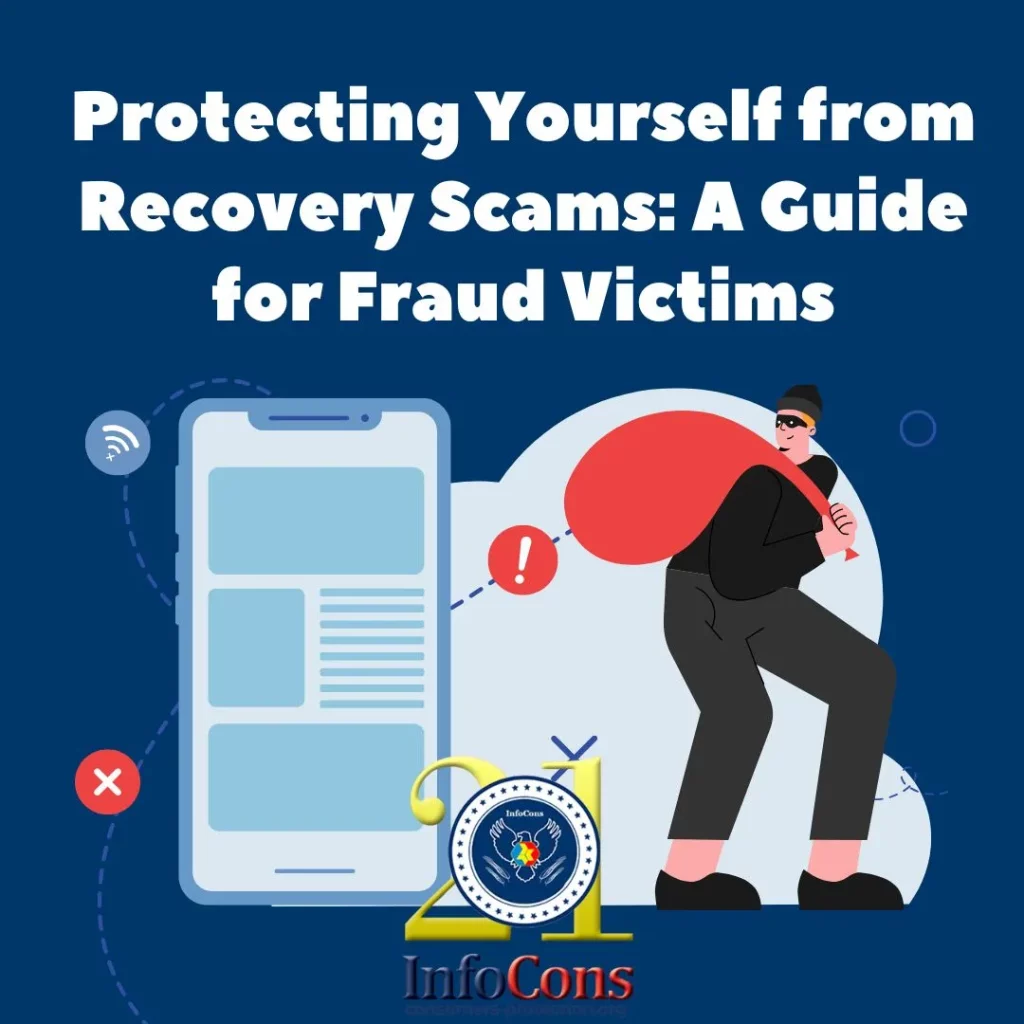
Falling victim to a scam can be a devastating experience, both financially and emotionally. Just when victims think they’ve hit rock bottom, they may face an even more insidious danger: recovery scams. These follow-up frauds prey on individuals desperate to reclaim their lost funds, turning their hopes into further losses.
As the prevalence of scams rises, so does the frequency of recovery scams, making it crucial for people to recognize and guard against these deceptive tactics. This guide breaks down how recovery scams work, who they target, and the steps you can take to protect yourself.
What Are Recovery Scams?
Recovery scams, also called follow-up fraud, occur when scammers contact individuals who have already been scammed, offering to help them recover their stolen funds. These schemes are often highly convincing because the perpetrators have access to detailed information about the victim’s previous scam.
Scammers may pose as representatives of banks, government agencies, or specialized recovery firms. They use personal details—such as the victim’s bank name, the amount of money lost, or other sensitive information—to establish credibility. In some cases, the scammers are the same individuals who orchestrated the original fraud.
Read also : Nitrogen Use in Agriculture : A Growing Threat to Health and the Environment
How Recovery Scams Operate
Recovery scams typically unfold in two ways:
- Exploiting Existing Victims: In the more sophisticated version, scammers already have access to personal information from the initial scam. They use this knowledge to approach the victim under the guise of legitimate recovery assistance.
- Fishing for New Victims: Alternatively, scammers search online for individuals who publicly discuss their experiences with scams. These scammers then pose as recovery agents or agencies, promising to retrieve lost money for a fee or additional personal information.
The Growing Threat of Recovery Scams
With the rise of online fraud, the pool of potential recovery scam victims has expanded. For instance, between December 2023 and May 2024, reports of recovery scams in Australia surged by 129% compared to the previous six months. Older adults, particularly those aged 65 and above, have been disproportionately targeted and suffered the highest financial losses.
As more people fall victim to scams, recovery scammers see greater opportunities to exploit their desperation.
Why Recovery Scams Are So Devastating
Recovery scams inflict a double blow on victims. Beyond the financial losses, they amplify feelings of betrayal, shame, and helplessness. Victims may experience a profound erosion of trust, not only in others but also in themselves.
This psychological toll can be severe, with many victims reporting heightened anxiety, loss of confidence, and even depression. For those who have lost their life savings, the impact can be life-altering.
Read also : 13% Drop in Chemical Production : EU Faces Significant Decline
How to Recognize and Avoid Recovery Scams
Protecting yourself from recovery scams requires vigilance and proactive measures. Here are key strategies to safeguard against this type of fraud:
- Be Wary of Unsolicited Contact
If someone unexpectedly reaches out claiming they can recover your lost funds, treat the interaction with skepticism. Legitimate organizations rarely initiate contact without prior communication.
- Resist Urgency Tactics
Scammers often pressure victims to act quickly, using urgency to bypass their critical thinking. Take your time to verify claims and avoid making impulsive decisions.
- Verify Contact Information Independently
If someone claims to represent a bank or agency, hang up and contact the organization directly using verified contact details. Avoid relying on numbers or links provided by the person reaching out.
- Protect Your Personal Information
Never share sensitive details, such as identification numbers or bank account information, with unknown entities. Scammers can use this data for identity theft or further fraud.
- Avoid Giving Remote Access to Your Devices
Scammers may ask to access your computer or phone under the pretense of checking for security issues. If you’ve already granted access, disconnect the device from the internet immediately to limit further harm.
- Research Recovery Services Thoroughly
If you’re considering hiring a recovery service, verify its legitimacy through official channels, such as a companies register or government database.
Read also : Did you know … 11% of Teens Face Challenges with Problematic Social Media Use ?
Moving Forward: Building Awareness to Combat Recovery Scams
Recovery scams thrive on the vulnerability of those who have already been victimized. By understanding how these schemes operate and taking preventive measures, individuals can protect themselves and reduce their risk of falling for follow-up fraud.
Public education is key to combating this growing threat. As scammers evolve their tactics, staying informed and cautious is more critical than ever. Remember, legitimate organizations will never pressure you for upfront fees or sensitive information to assist with recovering lost funds.
By remaining vigilant, we can guard against recovery scams and help others do the same.
Source : Consumer NZ
InfoCons – European Organization for Consumer Protection and Promotion of Programs and Strategies , a full member of the World Organization Consumers International, founding member of the Federation of Consumer Associations, and member of ANEC .